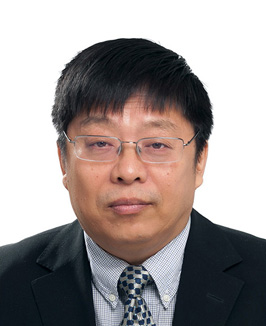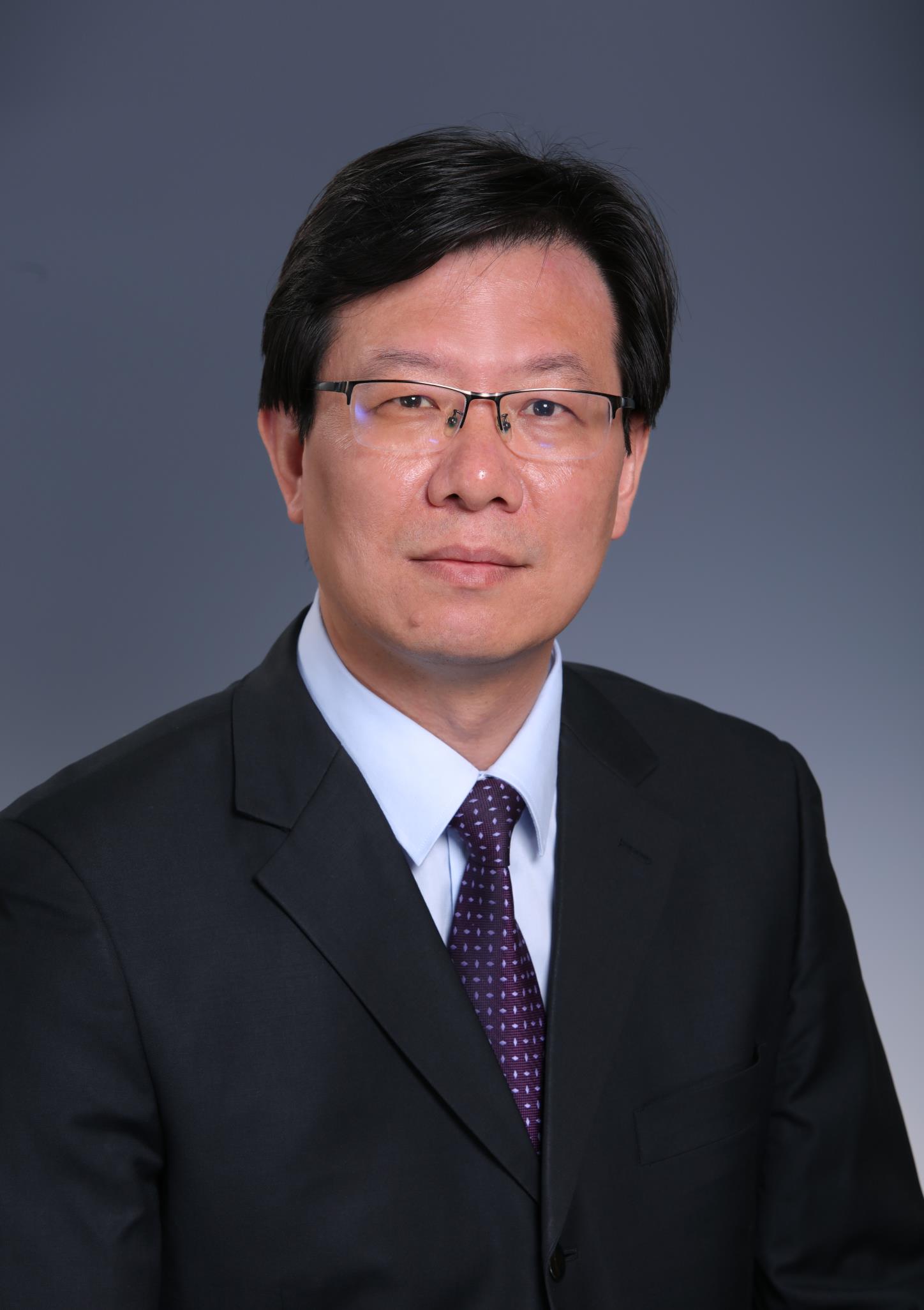Call for Papers of BIC-TA 2019

The 14th International Conference on Bio-inspired Computing: Theories and Applications (BIC-TA 2019) will be held on November 22-25, 2019, in Zhengzhou, China. The conference invites researchers to contribute high-quality original research papers in any aspect of bio-inspired computing, especially papers showing the power and impact of bio-inspired computing in artificial intelligence.
For more information about the conference, please check the conference website: http://2019.bicta.org/
The conference invites researchers to contribute high quality original research papers in any aspect of bio−inspired computing, especially papers showing the power and impact of bio-inspired computing in artificial intelligence. The main topics for the conference include, but are not limited to, the following:
Amorphous computing
Artificial Intelligence
Biochemical computing
Brain-inspired computing
Cellular automata and cellular neural networks
DNA computing
Evolutionary computation
Neural networks
Neuromorphic computing and architectures
Membrane computing
Molecular computing
Self-assembling and self-organizing systems
Swarm Intelligence and optimization
Bio−inspired control theory & applications
Bio−inspired complex networks and complex systems
Bio−inspired fuzzy logic and systems
Bio−inspired operations research and optimization
Bio−inspired systems engineering
Bio−inspired computing in bioinformatics and systems biology
Bio−inspired computing in cloud computing and big data
Bio−inspired computing in computational neuroscience
Bio−inspired computing in deep learning
Bio−inspired computing in image processing
Bio−inspired computing in information security
Bio−inspired computing in intelligent transportation systems
Bio−inspired computing in machine learning
Bio−inspired computing in pattern recognition
Bio−inspired computing in virtual reality and human-computer interaction
Bio−inspired computing in signal processing
Accepted papers will be published in Communications in Computer and Information Science (CCIS) by Springer. The majority of papers to be published in BICTA 2019 CCIS proceedings should be full papers (8-15 pages in the LNCS/CCIS one−column page format). Some selected papers will be invited for the special issues of several international journals, including:
1. International Journal of Bio-inspired Computation(SCI)
(https://www.inderscience.com/jhome.php?jcode=ijbic)
2. International Journal of Automation and Control (ESCI)
(https://www.inderscience.com/jhome.php?jcode=ijaac)
3. International Journal of Swarm Intelligence Research (ESCI)
(https://www.inderscience.com/jhome.php?jcode=ijsi)
(More journals will be announced)
Important Dates
Paper Submission Deadline : August 16, 2019
Notification of Paper Acceptance: September 13, 2019
Final Paper Submission : October 11, 2019
Conference Date : November 22 – 25, 2019
Keynote Speakers (To be continued)- in alphabetical order by surname

Professor Yaochu Jin
University of Surrey, UK
Yaochu Jin received the B.Sc., M.Sc., and Ph.D. degrees from Zhejiang University, Hangzhou, China, in 1988, 1991, and 1996, respectively, and the Dr.-Ing. degree from Ruhr University Bochum, Germany, in 2001.
He is currently a Distinguished Chair Professor in Computational Intelligence, Department of Computer Science, University of Surrey, Guildford, U.K., where he heads the Nature Inspired Computing and Engineering Group. He was a Finland Distinguished Professor funded by the Finnish Funding Agency for Innovation (Tekes) and a Changjiang Distinguished Visiting Professor appointed by the Ministry of Education, China. His main research interests include data-driven surrogate-assisted evolutionary optimization, evolutionary learning, interpretable and secure machine learning, and evolutionary developmental systems. His research has been funded by EU, EPSRC, Royal Society, NSFC, and the industry, including Honda, Airbus, and Bosch.
Dr Jin is the Editor-in-Chief of the IEEE TRANSACTIONS ON COGNITIVE AND DEVELOPMENTAL SYSTEMS and Co-Editor-in-Chief of Complex & Intelligent Systems. He is an IEEE Distinguished Lecturer (2013-2015 and 2017-2019) and past Vice President for Technical Activities of the IEEE Computational Intelligence Society (2014-2015). He is the recipient of the 2018 IEEE Transactions on Evolutionary Computation Outstanding Paper Award, and the 2015 and 2017 IEEE Computational Intelligence Magazine Outstanding Paper Award. He is an IEEE Fellow.

Professor Derong Liu
Guangdong University of Technology, China
Derong Liu received the Ph.D. degree in electrical engineering from the University of Notre Dame in 1994. He was a Staff Fellow with General Motors Research and Development Center, from 1993 to 1995. He was an Assistant Professor with the Department of Electrical and Computer Engineering, Stevens Institute of Technology, from 1995 to 1999. He joined the University of Illinois at Chicago in 1999, and became a Full Professor of Electrical and Computer Engineering and of Computer Science in 2006. He was selected for the “100 Talents Program” by the Chinese Academy of Sciences in 2008, and he served as the Associate Director of The State Key Laboratory of Management and Control for Complex Systems at the Institute of Automation, from 2010 to 2015. He is now a Full Professor with the School of Automation, Guangdong University of Technology. He has published 19 books. He is the Editor-in-Chief of Artificial Intelligence Review (Springer). He was the Editor-in-Chief of the IEEE Transactions on Neural Networks and Learning Systems from 2010 to 2015. He received the Faculty Early Career Development Award from the National Science Foundation in 1999, the University Scholar Award from University of Illinois from 2006 to 2009, the Overseas Outstanding Young Scholar Award from the National Natural Science Foundation of China in 2008, and the Outstanding Achievement Award from Asia Pacific Neural Network Assembly in 2014. He is a Fellow of the IEEE, a Fellow of the International Neural Network Society, and a Fellow of the International Association of Pattern Recognition.

Professor Kay Chen Tan
City University of Hong Kong, Hong Kong
Kay Chen TAN (SM’08-F’14) received the B.Eng. (First Class Hons.) degree in electronics and electrical engineering and the Ph.D. degree from the University of Glasgow, Glasgow, U.K., in 1994 and 1997, respectively. He is a Full Professor with the Department of Computer Science, City University of Hong Kong, Hong Kong SAR. He has published over 300 refereed articles and 10 books. Dr. Tan is the Editor-in-Chief of the IEEE Transactions on Evolutionary Computation, was the Editor-in-Chief of the IEEE Computational Intelligence Magazine from 2010 to 2013, and currently serves as the Editorial Board Member of over 10 journals. He is currently an elected member of IEEE CIS AdCom, an IEEE DLP Speaker, and a Changjiang Chair Professor in China.
Kay Chen Tan 教授,英国格拉斯哥大学学士、博士,长江讲座教授,美国 IEEE Fellow、Fellow 评委、计算智能协会理事会委员。1997年起在新加坡国立大学担任博士生导师,现任香港城市大学教授,担任 IEEE Transactions on Evolutionary Computation主编,曾任 IEEE Computational Intelligence Magazine主编,也是其它10多个顶级国际期刊的编辑,2016年世界智能计算全会(WCCI)联合主席,2019年 IEEE 进化计算大会(CEC)联合主席。Tan 教授发表了300多篇论文,出版了10本专著,其中《现代工业自动化软件设计》被翻译成中文,曾应邀在60多个国际会议上做大会报告,获得了许多学术机构的成就奖和荣誉,包括2019年IEEE Computational Intelligence Magazine的最佳论文奖,2016年 IEEE Transactions on Neural Networks and Learning Systems 的最佳论文奖,2008年国际机构 International Network for Engineering Education & Research的‘Recognition Award’奖等。他主要研究人工智能及计算智能、机器学习及优化、数据挖掘及运筹学等,推进优化、数据分析和机器学习应用的理论和创新技术,在Google学术上被引用1.2万次,h-index 55。

Professor Ling Wang
Tsinghua University, China
Ling Wang received the B.Sc. and Ph.D. degrees from Tsinghua University, Beijing, China, in 1995 and 1999, respectively, and now is a tenured Full Professor in Tsinghua Univ. His research interests mainly include intelligent optimization, scheduling and applications. He has authored 5 academic books and more than 160 SCI-indexed papers. His publications have attracted over 16K Google Scholar Citations. He is the Editor-in-Chief of International J of Automation and Control, the Associate Editor of IEEE Trans on Evolutionary Computation, Swarm and Evolutionary Computation, and the Editorial Board Member of Memetic Computing, J of Optimization, Control Theory & Applications, Control and Decision, Control Engineering, System Engineering and Electronics. Prof. Wang received the National Natural Science Award of China (2014), the Natural Science Award of the Ministry of Education (MOE) of China (both 2003 and 2007), the Science and Technology Awards of both Beijing City (2008) and Yunnan Province (2017). He also received the Best Paper Awards of ACTA AUTOMATICA SINICA (2014), Control Theory & Applications (2016), and Control and Decision (2017). He was the recipient of the National Natural Science Fund for Distinguished Young Scholars of China (2015), the New Century Excellent Talent in University by the MOE of China (2009), the Young Scientist Award of CAA (2016), and IEEE ICIC Outstanding Leadership Award (2018).

Professor Mengjie Zhang
Victoria University of Wellington, New Zealand
Mengjie Zhang is a Fellow of Royal Society of New Zealand, a Fellow of IEEE, and currently Professor of Computer Science at Victoria University of Wellington, where he heads the interdisciplinary Evolutionary Computation Research Group. He is a member of the University Academic Board, a member of the University Postgraduate Scholarships Committee, a member of the Faculty of Graduate Research Board at the University, Associate Dean (Research and Innovation) in the Faculty of Engineering, and Chair of the Research Committee of the Faculty of Engineering and School of Engineering and Computer Science.
His research is mainly focused on artificial intelligence (AI), machine learning and big data, particularly in evolutionary computation and learning (using genetic programming, particle swarm optimisation and learning classifier systems), feature selection/construction and big dimensionality reduction, computer vision and image processing, job shop scheduling and resource allocation, multi-objective optimisation, classification with unbalanced data and missing data, and evolutionary deep learning and transfer learning. Prof Zhang has published over 500 research papers in refereed international journals and conferences in these areas. He has been serving as an associated editor or editorial board member for over ten international journals including IEEE Transactions on Evolutionary Computation, IEEE Transactions on Cybernetics, the Evolutionary Computation Journal (MIT Press), Genetic Programming and Evolvable Machines (Springer), Applied Soft Computing, IEEE Transactions on Emergent Topics in Computational Intelligence, Natural Computing, and Engineering Applications of Artificial Intelligence, and as a reviewer of over 30 international journals. He has been involving major AI and EC conferences such as GECCO, IEEE CEC, EvoStar, IJCAI, AAAI,PRICAI, PAKDD, AusAI, IEEE SSCI and SEAL as a Chair. He has also been serving as a steering committee member and a program committee member for over 100 international conferences. Since 2007, he has been listed as one of the top ten (currently No. 4) world genetic programming researchers by the GP bibliography (http://www.cs.bham.ac.uk/~wbl/biblio/gp-html/index.html).
Prof Zhang is a Past Chair of the IEEE CIS Intelligent Systems Applications Technical Committee, the IEEE CIS Emergent Technologies Technical Committee and the IEEE CIS Evolutionary Computation Technical Committee, a vice-chair of the IEEE CIS Task Force on Evolutionary Feature Selection and Construction, a vice-chair of the IEEE CIS Task Force on Evolutionary Computer Vision and Image Processing, and the founding chair of the IEEE Computational Intelligence Chapter in New Zealand.
More information can be seen from our personal website:
https://www.victoria.ac.nz/engineering/about/staff/mengjie-zhang
http://homepages.ecs.vuw.ac.nz/~mengjie/
Committees
Honorable Chair
Zongmin Wang, Zhongyuan University of Technology, China
General Chairs
Qingfu Zhang, City University of Hong Kong, China
Jin Xu, Peking University, China
HaibinDuan, Beihang University, China
Zhoufeng Liu, Zhongyuan University of Technology, China
Jing Liang, Zhengzhou University, China
Organizing Chairs
Xiaowei Song, Zhongyuan University of Technology, China (Email: sxw-tju@163.com)
Jinfeng Gao, Zhengzhou University, China
Yanfeng Wang, Zhengzhou University of Light Industry, China
Yufeng Peng, Henan Normal University, China
Dexian Zhang, Henan University of Technology, China
Hongtao Zhang, North China University of Water Resources and Electric Power, China
Xichang Xue, PingDingShan University, China
Qinghui Zhu, Nanyang Institute of Technology, China
Xiaoyu An, Henan Electrotechnical Society, China
Special Session Chairs
Yuhui Shi, Southern University of Science and Technology, China (Email: shiyh@sustech.edu.cn)
Shi Cheng, Shaanxi Normal University, China (Email: cheng@snnu.edu.cn)
Tutorial Chairs
He Jiang, Dalian University of Technology, China (Email: jianghe@dlut.edu.cn)
Wenyin Gong, China University of Geosciences, China(Email: wygong@cug.edu.cn)